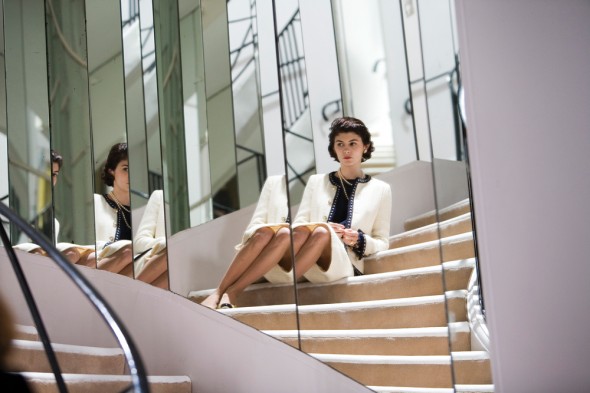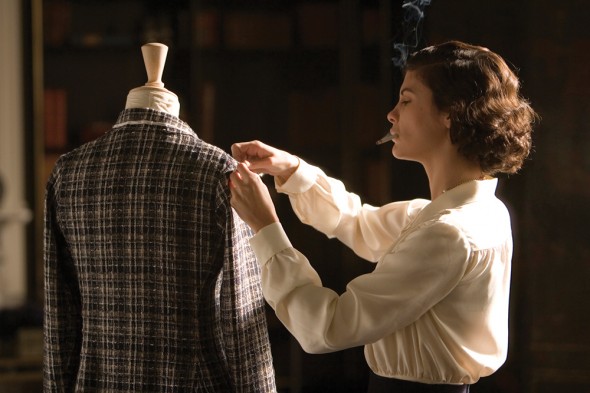
Director Anne Fontaine gives us a glimpse of Coco Avant Chanel
Those unfamiliar with the enigmatic prowess of Coco Chanel will surely have a fashion history lesson upon viewing Anne Fontaine’s newest cinematic exploration, Coco Avant Chanel. The film tells the story of how the iconic designer created an empire from humble beginnings and surpassed cultural boundaries and setbacks, at a time when women did not have a voice in the fashion industry. SOMA sat down with the director to speak about the new film, the challenges that came with creating a period piece, and the journey to make one of the most famous stories in the world of fashion.
You came from a dance background along with a brief moment in acting. How has your artistic past influenced your directorial style, and what inspired you to make that transition?
I actually started off as a ballet dancer which led me into the world of acting. While in dance class, a director approached me and asked if I wanted to play the part of Esmeralda in his production of The Hunchback of Notre Dame. However, as much as I enjoyed the experience, it truly was not my calling. As an actor, one has to give up control, and I wanted to control my own vision and what I wanted to put out into the world. Shortly thereafter, I started writing scripts. Through my own determination and the encouragement of friends, I was on the path of having the opportunity to share stories of what I was truly passionate about. This eventually led me to where I am, directing today.
Do you believe that audiences will have a different perception of Coco Chanel when they see your film, since it showcases her as the woman before the icon? Why was this time so important for you to display?
Yes I do. Many people, until this day, do not know about Coco before Chanel. Even in France, some only know of her as a fashion figure. I wanted to take the role of exposing her in the most vulnerable way. She was a fighter, a survivor, and that came from a difficult childhood. She was a young farm girl, who was not only abandoned, but did not even know what having a destiny meant. I thought it was important to make a film that would expose audiences to the struggles of her life and the process of her rise.
Coco was quite a strong female figure for all women in many facets, extending beyond the realm of fashion. Tell us how your film shed light on that.
Coco was the first androgynous female figure during a time when being androgynous was not a fashion statement. Doing what was natural to her translated into pushing boundaries with her clothing, sexuality and confines of femininity.

Audrey Tautou as Coco Chanel in Anne Fontaine's COCO AVANT CHANEL.
What was the defining factor in choosing Audrey Tautou to play this role? How was your experience working with her?
When I met with Audrey, she had a remarkable resemblance to Coco in many ways. From the darkness of her hair and eyes, to her petite stature, the structure of her face, and even sharing the same birthplace: Loire Valley, France. In this role, Audrey transcends beyond the sweet label of the wide-eyed lovable character she portrayed in Amelie, and replicates Coco’s chic and classy demeanor, transforming her from a shy, timid girl, into a complex and strong woman.
What challenges did you face while making the film?
For one, honoring all the details accurately in a period piece is always a challenge. However, bringing new life to the past was my biggest concern. I wanted to make sure to give as much movement to a scene as possible, in order to recreate the moments so the segments of the film wouldn’t look stale, or as if it was something on display in a museum.
Did you consult any significant figures in fashion when researching this film?
Yes, I spoke to people that knew Coco Chanel personally. My costume designer, Catherine Leterrier, researched the time period and was the creative force behind the costumes. The Maison Chanel opened its archives, the Chanel Conservatory, so that the original pieces can be used in the final catwalk scene, as well as Karl Lagerfeld going over sketches.
What is the most important lesson you have learned as a filmmaker over the years?
As a filmmaker, confidence is key, as well as having faith in oneself, and vision. Others will sense your weakness if you don’t stay strong. The ability to say no, and sticking to what you believe in is very important, especially in an industry where your project can be pulled in many different directions and you may truly lose your voice if you allow that in the whole process.
– Natalie Shirinian & Michelle Peerali

